RESEARCH TEAM
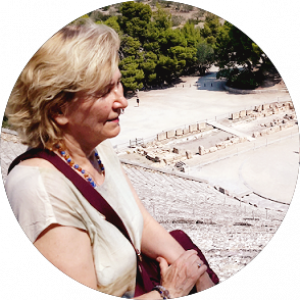
Maria Kalinowska - kierownik projektu
– is a professor at the Faculty of “Artes Liberales” of the University of Warsaw. She is the author of several books on Romantic literature and the Romantic reception of classical antiquity. These include “Mowa i milczenie – romantyczne antynomie samotności” [“Speech and Silence: Romantic Antinomies of Solitude”] (1989); “Grecja romantyków. Studia nad obrazem Grecji w literaturze romantycznej” [“Greece of the Romantics: Studies on the Perception of Greece in Romantic Literature”] (1994), “Los, miłość, sacrum. Studia o dramacie romantycznym i jego dwudziestowiecznej recepcji” [“Fate, Love, Sacrum: Studies on Romantic Drama and its Reception in the Twentieth Century”] (2003), and a new edition of the poem “Journey to the Holy Land from Naples” by Juliusz Słowacki (2011). She heads a Philhellenic team to prepare publications on Philhellenism in Poland (2007, 2012) and on Sparta in Polish culture (2014, 2015).
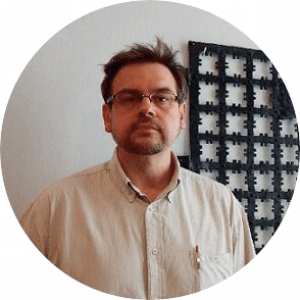
Henryk Głębocki - znalazca rękopisu
– (b. 1967), historian; graduate of the Jagiellonian University, where he is now professor, and researcher at the Institute of National Remembrance (IPN) in Kraków. He specializes in the history of Eastern Europe, the Russian Empire and the Soviet Union, Polish-Russian relations in the 19th and 20th centuries, and the history of the Polish People’s Republic. He has authored and co-authored a number of books on these topics, including “Fatalna sprawa. Kwestia polska w rosyjskiej myśli politycznej 1856–1866” [“A Dreadful Affair: The Question of Poland in Russian Political Thought 1856–1866”] (Klio Award 2000), “Policja tajna przy robocie. Z dziejów państwa policyjnego w PRL” [“Secret Police at Work: A History of the Police State in the Polish People’s Republic”] (2005, special mention in the Jerzy Łojek Award contest), “Kresy Imperium. Szkice i materiały do dziejów polityki Rosji wobec jej peryferii (XVIII–XXI wiek)” [“The Ends of the Empire: Sketches and Materials for a History of Russian Policy towards Its Peripheries (18th–21st Century)”] (2006), “Diabeł Asmodeusz w niebieskich binoklach i kraj przyszłości. Hr. Adam Gurowski i Rosja” [“Asmodeus the Devil in Blue Pince-Nez and the Country of the Future: Count Adam Gurowski and Russia”] (2012). He has conducted preliminary research surveys in archives and manuscript collections in countries including Russia, Ukraine, Belarus, Lithuania, Hungary, France, the United Kingdom and the United States. One of his discoveries involved finding the manuscript of Juliusz Słowacki’s diary from his journey to the East, which was lost during the Soviet invasion of Poland in September 1939, at the Russian State Library in Moscow.
Among his discoveries is that of the lost manuscript of the Eastern journal by Juliusz Słowacki, found at the Russian State Library in Moscow.
Among his discoveries is that of the lost manuscript of the Eastern journal by Juliusz Słowacki, found at the Russian State Library in Moscow.
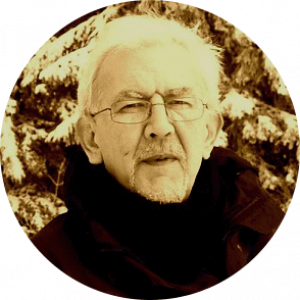
Jacek Brzozowski (1951–2017)
– (1951–2017), literary historian, outstanding philologist, editor, affiliated with the University of Łódź ever since he was a student of Polish Studies, climbing up the rungs of a university career all the way to full professor (2009). Eminent expert on Romantic poetry. His research focused on the oeuvre of the greatest Polish Romantics (Mickiewicz, Słowacki, Norwid, Malczewski) as well as contemporary poetry (Miłosz, Herbert, Różewicz, Szymborska, Białoszewski and others). Co-author (with Zbigniew Przychodniak) of a new critical edition of the works of Juliusz Słowacki; editor (with Katarzyna Szumska) of “Słowacki’s Dziennik z lat 1847–1849” [“Journal of the years 1847–1849”] (2012).
As part of the ‘Juliusz Słowacki’s journal of the Journey to the East’ Team, his task was to analyse (together with Professor Zbigniew Przychodniak) the manuscript in its entirety, including the poems.
As part of the ‘Juliusz Słowacki’s journal of the Journey to the East’ Team, his task was to analyse (together with Professor Zbigniew Przychodniak) the manuscript in its entirety, including the poems.
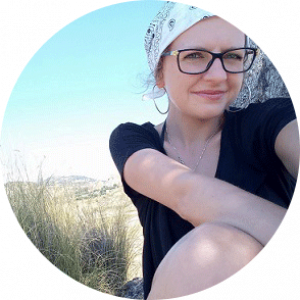
Milena Chilińska
– is Associate Professor at the Faculty of “Artes Liberales” of the University of Warsaw. Earned her MA in Polish Philology from the Nicolaus Copernicus University in Toruń. She prepared her BA, MA, and PhD dissertations under Professor Maria Kalinowska. Laureate the Lama scholarship to do research in Paris (2019). Contributed to research projects such as the edition of Juliusz Słowacki’s Eastern journey diary (“Raptularz wschodni”) and archiving the Władysław Mickiewicz inventory at the Polish Library in Paris. Her research is focused on Słowacki’s mystical works, the Romanticist and Young Poland painting, correspondence of the arts, and editing. She has authored “Topografia wyobraźni anhellicznej. Modernistyczna recepcja Anhellego Juliusza Słowackiego” (2021) [“Topography of the anhellic imagination. Modernist reception of Juliusz Słowacki’s Anhelli”].
As part of the grant-based research Team, she dealt with Swiss reminiscences of Słowacki in the course of his journey. Dr Chilińska is responsible for the concept of the website on the poet’s notebook as well as for its administration and coordination.
As part of the grant-based research Team, she dealt with Swiss reminiscences of Słowacki in the course of his journey. Dr Chilińska is responsible for the concept of the website on the poet’s notebook as well as for its administration and coordination.
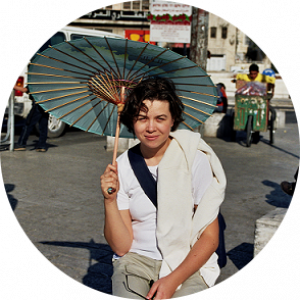
Emilia Furmanek
– is a graduate of Polish studies at the Nicolaus Copernicus University in Toruń, where she obtained a master’s degree based on her dissertation Słowacki’s Angels. Her research interests to date have focused on the sources and manifestations of mystical experience in Słowacki’s works. In 2000, she visited the Holy Land, hence her interest in the journey of Słowacki to the East and its further influences on his life. In addition, she is interested in the lives and works of the hermits and Christian mystics, and in sacred music. She is the author of the following articles “Symboliczne wizje aniołów w twórczości Słowackiego” [“Symbolic Visions of Angels in Słowacki’s Works”] (Białystok 2002), „Genezyjsko-apokaliptyczna tęczowość w twórczości Juliusza Słowackiego” [“The Genealogical-Apocalyptic Rainbow in the Work of Juliusz Słowacki”] (Białystok 2007), “Mistyczne piękno duszy bohaterów Słowackiego” [“Mystical Beauty of the Soul of Słowacki’s Figures” (Białystok 2014–2015), “Świątynia strachu w “Agezylauszu” Juliusza Słowackiego” [“Temple of Fear in Agezylausz by Juliusz Słowacki”] (Białystok 2016).
In 2000, she travelled to the Holy Land, and hence her interest in Słowacki’s journey to the East and how it influenced the poet’s life. In the present project, he has dealt with Polish orientality and European Orientalism as contexts of the journey.
In 2000, she travelled to the Holy Land, and hence her interest in Słowacki’s journey to the East and how it influenced the poet’s life. In the present project, he has dealt with Polish orientality and European Orientalism as contexts of the journey.
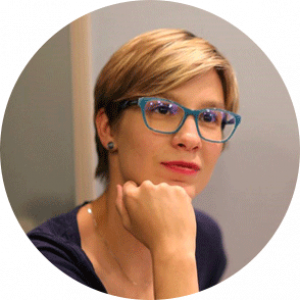
Ewa Róża Janion
– is Associate Professor at the Faculty of “Artes Liberales” of the University of Warsaw. A Hellenist with interests in gender and queer studies, she has authored “Imaging Suli: Interactions between Philhellenic Ideas and Greek Identity Discourse” (2015). Her current research interests focus on the work of Constantine P. Cavafy.
Dr Janion has contributed to our website, notably by developing the concept of a critical digital edition of the “Raptularz wschodni” using the TEI standard.
Dr Janion has contributed to our website, notably by developing the concept of a critical digital edition of the “Raptularz wschodni” using the TEI standard.
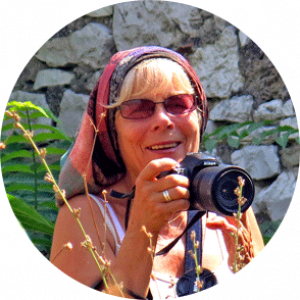
Elżbieta Jastrzębowska
– Roman and early Christian archaeologist after studies at the University of Warsaw (MA in 1969), Pontificio Istituto di Archeologia Cristiana in Rome and Albert-Ludwigs- Universität in Freiburg in Breisgau (PhD in 1979). She participated in excavations, among others in Palmyra (Syria), Ptolemais (Libya) and Sussita-Hippos (Israel). Employed: 1980- 1992 at the Royal Castle Museum in Warsaw; 1990-2016 at the Institute of Archaeology of the University of Warsaw (professorship in 2002); 2000-04 at the Cardinal S. Wyszyński University; 2005-09 Director of the Scientific Station in Rome; 2017-21 Institute of Mediterranean and Oriental Cultures of the Polish Academy of Sciences, Warsaw. Author of many articles and books including others: “Sztuka Wczesnochrześcijańska” (“Early Christian Art” 2008), “Podziemia antycznego Rzymu” (“Undergrounds of Ancient Rome” 2014), and “Cities of Apocalypse” (2017). In addition to multiple research visits and invitations for lectures to Italy, Germany, France, United Kingdom, and Turkey, she made many scientific tours around the Mediterranean Sea, including three visits to Israel.
In this project responsible for the reconstruction of the stay of J. Słowacki in January 1837 in the Holy Land.
In this project responsible for the reconstruction of the stay of J. Słowacki in January 1837 in the Holy Land.
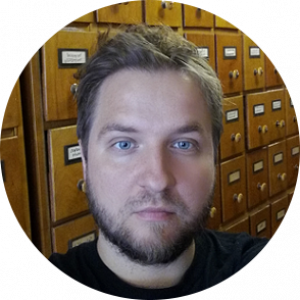
Damian Kaja
– obtained his MA (2008) and PhD (2014) at the Nicolaus Copernicus University in Toruń. Member of the staff of the Polish Academy of Science’s Institute of Literary Research [IBL PAN] since 2017, he has dozens of scholarly articles published in periodicals and multi-author books on literature, film, and comic books. Damian has (co-)edited the books “Problematyka tekstu głosowo interpretowanego” (2010), “O kondycji człowieka w polskiej literaturze najnowszej” (2014), “Sparta w kulturze polskiej”, Part 2; “Przekroje, syntezy, konteksty” (2015) and of the special issues of “Polonistyka” (3/2011) and “Litteraria Copernicana” (1/2016). Reviewer (since 2012) and member of the editorial board (2014–) of “Zeszyty Komiksowe”.
His contributions to the project Juliusz Słowacki’s rediscovered notebook included the editorial concept for the three volumes of this Eastern journey diary, validation of the manuscript transcription and transliteration work, and editorial wok on volume 2 of “Raptularz wschodni Juliusza Słowackiego (Edycja – komentarz – objaśnienia)”.
His contributions to the project Juliusz Słowacki’s rediscovered notebook included the editorial concept for the three volumes of this Eastern journey diary, validation of the manuscript transcription and transliteration work, and editorial wok on volume 2 of “Raptularz wschodni Juliusza Słowackiego (Edycja – komentarz – objaśnienia)”.
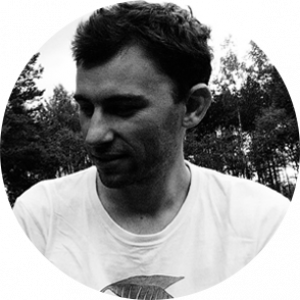
Przemysław Kaniecki - project coordinator
– (b. 1982), is a literary historian, film experts, and anthropologist. He works as assistant professor at the Faculty of “Artes Liberales” of the University of Warsaw and as a curator with the POLIN Museum of the History of Polish Jews. He has penned the monographs “Lawa” (2008), “Wniebowstąpienia Konwickiego” (2013) and “Samospalenie Konwickiego” (2014). In 2011, he published an extended interview with Tadeusz Konwicki entitled “W pośpiechu” (2011), in 2016 – “Przynoszę rzecz, przynoszę historię” (co-authored by Judyta Pawlak).
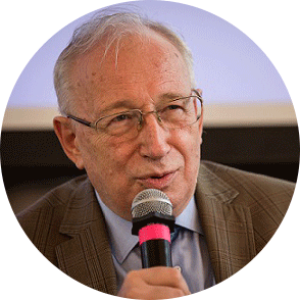
Jan Kieniewicz
– (b. 1938) is a historian. He completed his PhD in 1966, his habilitation in 1974, and became a professor in 1983 at Warsaw University. He was Director of Iberian Studies from 1975 to 1981, Deputy Director of Institute of History from 1981 to 1988, and since 1996 he has been a full professor at Faculty of “Artes Liberales”. His areas of interest include modern world history, European expansion, colonialism and post-colonialism, civilizations of the east and west, theory of social systems, and eco-systemic approaches. He has published on the history of India, Spain, Poland, and Europe and is the author of 600 articles and books, including “Historia Indii” [“A History of India”] (1980, 1985, 2003), “Od ekspansji do dominacji. Próba teorii kolonializmu“ [“From Expansion to Domination: An Attempt at a Theory of Colonialism“] (1986), “Spotkania Wschodu“ [“Eastern Encounters“] (1999), “Historia de Polonia“ [A “History of Poland“] (2001), “Wprowadzenie do historii cywilizacji Wschodu i Zachodu“ [“An Introduction to the History of Eastern and Western Civilizations“] (2003), “Ekspansja. Kolonializm. Cywilizacja“ [“Expansion – Colonialism – Civilization“] (2008), “Wyraz na ustach zapomniany. Polskiej inteligencji zmagania z Ojczyzną“ [“A Phrase Forgotten on the Lips: Polish Intelligentsia and the Struggle with the Homeland“] (2012), “Perspektywy postkolonializu w Polsce, Polska w perspektywie postkolonialnej“ [ed] [“Perspectives on Postcolonialism in Poland – Poland from the Perspective of Postcolonialism“] (2016). He was the Polish ambassador to Spain 1990–1994, and since 1998 he has been President of the Board of the “Institute Artes Liberales” Foundation.
In our project, prof. Kieniewicz has dealt with Polish orientality and European Orientalism as contexts of the journey.
In our project, prof. Kieniewicz has dealt with Polish orientality and European Orientalism as contexts of the journey.

Elżbieta Kiślak
– is a professor at the Institute of Literary Research of the Polish Academy of Sciences. Her research interests focus on the literature of the nineteenth and twentieth centuries. She is the author of “Car-trup i Król-Duch: Rosja w twórczości Słowackiego” [“Tzar-Corpse and King-Spirit: Russia in the Works of Słowacki”] (1991) and “Walka Jakuba z aniołem. Czesław Miłosz wobec romantyczności” [“Jacob’s Fight with the Angel: Czesław Miłosz and Romanticism”] (2001).
She has elaborated on aspects of Juliusz Słowacki’s inner transformation while in the East, in the light of his pieces from the “Eastern journal“.
She has elaborated on aspects of Juliusz Słowacki’s inner transformation while in the East, in the light of his pieces from the “Eastern journal“.
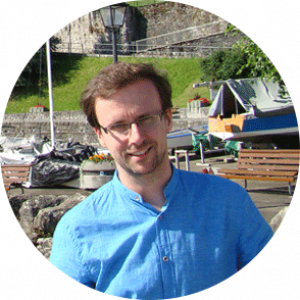
Marcin Leszczyński
– Polish and English philologist, assistant professor at the Department of Comparative Studies of the Institute of Polish Literature at the University of Warsaw. His research interests include Polish and English Romantic literature, comparative literary studies, comparative discourse studies, literature and science studies. He is the author of: “Lutnia szalonego barda. Metaliterackie aspekty poematów dygresyjnych Byrona i Słowackiego” [“Lute of a mad bard: Metaliterary aspects of digressive poems by Byron and Słowacki”] (2014) and the co-editor of “Poemat dygresyjny Juliusza Słowackiego. Struktura, konteksty, recepcja” [“Juliusz Słowacki’s digressive poem: Structure, contexts, reception”] (2011; co-editor: M. Kalinowska) and “Między dyskursami, sztukami, mediami. Komparatystyka jutra” [“Between discourses, arts, media: Comparative studies of tomorrow” (2017; co-editors: E. Szczęsna, P. Kubiński).
In collaboration with Peter Cochran, he has translated into English “Canto I“ of Juliusz Słowacki’s “Journey to the Holy Land from Naples“. He moreover analysed the drawings of stars from the “Eastern journal“ and dealt with associations of Słowacki’s work with astronomy.
In collaboration with Peter Cochran, he has translated into English “Canto I“ of Juliusz Słowacki’s “Journey to the Holy Land from Naples“. He moreover analysed the drawings of stars from the “Eastern journal“ and dealt with associations of Słowacki’s work with astronomy.
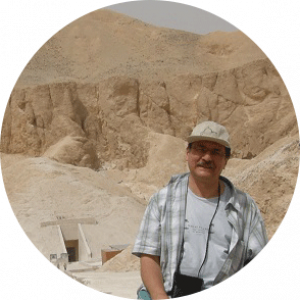
Adam Łukaszewicz
– is full professor of archaeology, papyrology and ancient history at the University of Warsaw, Institute of Archaeology, Department of Papyrology. Educated in the field of Mediterranean Archaeology under direction of the Polish protagonist in that field professor K. Michałowski, he developed as a papyrologist and historian of antiquity. Since 1980 he carries out research in Egypt with the Polish Centre of Mediterranean Archaeology (a branch of the University of Warsaw). As a fellow of the Alexander von Humboldt Foundation he spent a period of research at the University of Marburg. He is a member (alumnus) of the Institute for Advanced Study in Princeton, NJ. Former deputy dean of the Historical Faculty of the University of Warsaw and ex-chairman of the Warsaw Department of the Polish Philological Society, he is currently Vice-Chairman of the Committee for the Study of Ancient Culture of the Polish Academy of Sciences. He is also a member of the Commission for Classical Philology of the Polish Academy of Sciences and Letters in Cracow, a honorary member of the Society of Historians of Antiquity, a member of the Polish PENClub and of several Polish and international scientific societies. His research in Egypt is concentrated on Alexandria and the Valley of the Kings and concerns archaeological and epigraphic evidence of the Greco-Roman period. He discovered some important ancient inscriptions. He published a series of books, e.g. “Świat papirusów“ (2001), “Kleopatra“ (2005), “Egipt Greków i Rzymian” (2006), “Polish archaeological actvities in Egypt” (2013), “Opowieści spod piramid” (2015) and over 200 minor studies in several languages.
In "Juliusz Słowacki’s rediscovered notebook" project, he was responsible for the elaboration of issues related to the poet’s sojourn in Egypt.
In "Juliusz Słowacki’s rediscovered notebook" project, he was responsible for the elaboration of issues related to the poet’s sojourn in Egypt.

Ewa Łukaszyk
– was born in 1972. After her studies in Romance languages and Comparative Literature in Poland and in Portugal (University of Lisbon), she obtained her PhD and habilitation degrees at the Jagiellonian University in Kraków, where she also got her academic initiation in Oriental studies. In 2006–2016 she taught at the Faculty “Artes Liberales” at the University of Warsaw. She has published several books on Portuguese and Lusophone literatures, including “Terytorium a świat” [“The Territory and the World”] (Kraków, 2003), “Pokusa pustyni” [“The Temptation of the Desert”] (Kraków, 2005), and “Imperium i nostalgia” [“Empire and Nostalgia”] (Warsaw, 2015). She has also authored a number of publications in cultural theory and criticism, including a volume of essays “Humanistyka, która nadchodzi” [“The Coming Humanities”] (Warsaw, 2018). She was editor and co-editor of three volumes of studies in comparative literature, of which the latest is “Niewłasne lektury” [“Unappropriated Books”] (Warsaw, 2018). Recently she has been working abroad as a Calouste Gulbenkian Foundation fellow in Portugal and a Marie Curie-Skłodowska fellow in France. Currently she is preparing a major research project under the title “Poetics of the Void. Mystical Insight and Transcultural Transgression in the Mediterranean”.
As a member of the grant-based Team, she interpreted Słowacki’s journey notes as a testimony of an encounter with otherness/dissimilarity and derailment from one’s own course of cultural functioning. In her perception, the journal documents a non-homogeneous construction of an image of the Orient by a subject furnished with no Orientalist knowledge.
As a member of the grant-based Team, she interpreted Słowacki’s journey notes as a testimony of an encounter with otherness/dissimilarity and derailment from one’s own course of cultural functioning. In her perception, the journal documents a non-homogeneous construction of an image of the Orient by a subject furnished with no Orientalist knowledge.
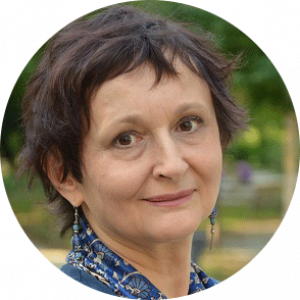
Urszula Makowska
– art historian; she works in the writing and editing team of “Słownik
artystów polskich i obcych w Polsce działających (zmarłych przed 1966 r.). Malarze,
rzeźbiarze, graficy” [“Dictionary of Polish Artists and Foreign Artists Active in Poland
(Deceased before 1966): Painters, Sculptors, Graphic Artists”] at the Institute of Polish Art of the Polish Academy of Sciences in Warsaw. She has been collaborating with
the editors of the international publication “Allgemeines Künstler-Lexikon” since 1994 as an author of biographical entries on Polish artists. Her main area of interest is Polish art of the 19th and the first half of the 20th century, its fringes and borderlines,
and especially its connection to literature. She is particularly interested in the work
of Juliusz Słowacki, on whom she has published papers in conference proceedings,
and in journals such as “Ikonotheka”, “LiteRacje”, “Konteksty” and “Teksty Drugie”.
She has prepared critical commentaries to all the drawings made by Słowacki in his "Eastern journal" and dealt with the fate of this notebook.
artystów polskich i obcych w Polsce działających (zmarłych przed 1966 r.). Malarze,
rzeźbiarze, graficy” [“Dictionary of Polish Artists and Foreign Artists Active in Poland
(Deceased before 1966): Painters, Sculptors, Graphic Artists”] at the Institute of Polish Art of the Polish Academy of Sciences in Warsaw. She has been collaborating with
the editors of the international publication “Allgemeines Künstler-Lexikon” since 1994 as an author of biographical entries on Polish artists. Her main area of interest is Polish art of the 19th and the first half of the 20th century, its fringes and borderlines,
and especially its connection to literature. She is particularly interested in the work
of Juliusz Słowacki, on whom she has published papers in conference proceedings,
and in journals such as “Ikonotheka”, “LiteRacje”, “Konteksty” and “Teksty Drugie”.
She has prepared critical commentaries to all the drawings made by Słowacki in his "Eastern journal" and dealt with the fate of this notebook.

Zbigniew Przychodniak
– literary historian, textual scholar, bibliographer; affiliated with the Polish Philology Institute of the Adam Mickiewicz University in Poznan. Among his published works are: “Walka o rząd dusz. Studia o literaturze i polityce Wielkiej Emigracji” (2001); “Poszukiwania, cierpienia i eksplozje. Dwanaście szkiców postromantycznych” (2016); “Fiction et histoire, textes réunis” par Z. Przychodniak et G. Séginger, Presse universitaires de Strasbourg, 2011. Co-author of the new critical edition of the works of J. Slowacki (“Wiersze”, 2005; “Poematy”, t. 1-2, 2009-2010; “Beniowski”, 2014) and the bibliography of Mickiewicz in the series of “Nowy Korbut”.
As member of the Team, he analysed the entire manuscript, including the poems featured in it (together with Professor Jacek Brzozowski).
As member of the Team, he analysed the entire manuscript, including the poems featured in it (together with Professor Jacek Brzozowski).

Marek Troszyński
– professor at the Centre for Philological Studies and Scholarly Editing at the Institute of Literary Research of the Polish Academy of Sciences, and a lecturer in the University of Warsaw’s Faculty of “Artes Liberales”. He is the author of books, treatises and editions related to the Polish Romantic period, in particular on the life and work of Juliusz Słowacki. He is a member of the Programme Council of the Clarin- Pl Language Technology Centre and a collaborator at the Digital Humanities Centre at the Institute of Literary Research of the Polish Academy of Sciences.
Responsible in the grant-based Team for analysing Słowacki’s jottings and bills in the poet’s Eastern notebook.
Responsible in the grant-based Team for analysing Słowacki’s jottings and bills in the poet’s Eastern notebook.
Współpracownicy
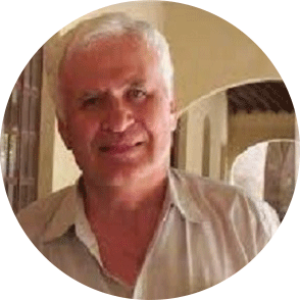
Panos Karagiorgos
– is former professor of English Language and Literature in the Translation Department of the Ionian University, Corfu. He studied English and Greek literature at the Aristotle University of Thessaloniki and English literature at the Shakespeare Institute of Birmingham University, where he received his PhD in 1976 with his dissertation “Greek Translations of Shakespeare: A Comparative Study”. He then lectured on English and Modern Greek literature at the University of Ioannina up to 1980, when he moved to the Ionian University, where he taught English–Greek translation and English language and literature up to 2004. He has also been a visiting professor at various universities in the United States, Canada, Germany, Norway, Italy, and Cyprus. He discovered and published unknown letters by the Greek poets Solomos and Kalvos and he is a member of the Greek Byron Society, the Hellenic Literary Translators’ Association, the Association of Epirus Writers, and a Life Member of the International Lawrence Durrell Society.
As member of the Team, he dealt with the reminiscences of Słowacki by the Greet poet Dionisios Solomos.
As member of the Team, he dealt with the reminiscences of Słowacki by the Greet poet Dionisios Solomos.
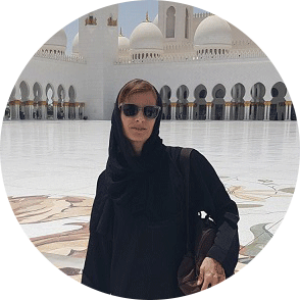
Magdalena Kubarek
– holds a doctorate in humanities, and specializes in Arab philology and literary translation. She is assistant professor in the Department of Arabic Language and Culture of the Nicolaus Copernicus University in Toruń and she also teaches in the Centre for Eastern Languages of Warsaw University. She is secretary of Polish Oriental Society, a member of the Union Européenne des Arabisants et Islamisants and of the European Association for Modern Arabic Literature. She is a researcher in the field of contemporary Arabic literature, the social and cultural development of the modern Arab world, and intercultural interferences. Her publications include several dozen works in Polish, English, Arabic, and German, among them: “Miraże i oazy. Su’ad as-Sabah i inne poetki kuwejckie” [“Mirages and Oases: Suad as-Sabah and other Women Poets of Kuwait”] (2006), and “Motyw śmierci w twórczości współczesnych poetek arabskich” [“The Death Motif in Works by Contemporary Arab Women Poets”] (2009). She has also published translations of Arabic literature including “Miasta soli” (“Cities of Salt”) by Abd ar-Rahman Munif in 2010, and “Połamane skrzydła” (“Broken Wings”) by Khalil Gibran in 2012.
For the purposes of the project, she compiled Słowacki’s Arabic glossary.
For the purposes of the project, she compiled Słowacki’s Arabic glossary.

Monika Mikuła
– a graduate in Classical Studies from the University of Warsaw, she has completed postgraduate Hellenic studies at the University of Warsaw’s Centre for Studies on the Classical Tradition in Poland and East-Central Europe. She teaches Latin and Old Greek at the University of Warsaw. She has authored Polish translations of modern Greek poetry: the anonymous poem “Piękna pastereczka” [“The Beautiful Shepherdess”] (“Arcydzieła Literatury Nowogreckiej” [“Masterpieces of Modern Greek Literature”], vol. I) and Dionysios Woman of Zakynthos (“Arcydzieła Literatury Nowogreckiej” [“Masterpieces of Modern Greek Literature”], vol. III), as well as several papers on the life and work of Dionysios Solomos. She has also written two textbooks for learning ancient Greek: “Podręcznik do greki chrześcijańskiej” [“Christian Greek Textbook”] and Hellenes esmen pantes. “Podręcznik do nauki języka starogreckiego” [“Hellenes esmen pantes: Ancient Greek Language Textbook”] (with Magdalena Popiołek).
As part of our project, she has dealt with Dionisios Solomos in the light of his friends’ recollections and the Słowacki poem.
As part of our project, she has dealt with Dionisios Solomos in the light of his friends’ recollections and the Słowacki poem.

Łukasz Ziomek
– deals with visual arts (video, film, graphic design). He directed a feature-length experimental movie “Mój koniec świata beze mnie” [“My End of the World Without Me”]. Collaborated with the renowned theatre director Krystian Lupa for the production of “Mo Fei”, based on ShiTiesheng’s prose, at the Tianjin Grand Theatre. Earlier on, he published literary and theatre criticism in the periodicals “Kino”, “Didaskalia”, “EKRANy” or “Rita Baum”.
See:
placebohouse.com
vimeo.com/lukaszziomek
He is responsible for our site’s layout and artwork; he has designed the covers for the several-volume “Raptularz edition”.
See:
placebohouse.com
vimeo.com/lukaszziomek
He is responsible for our site’s layout and artwork; he has designed the covers for the several-volume “Raptularz edition”.



